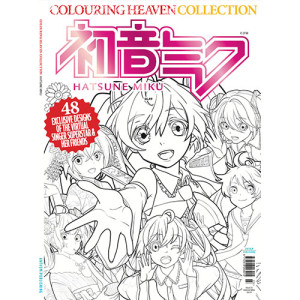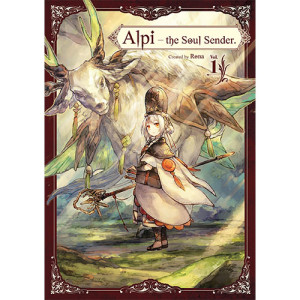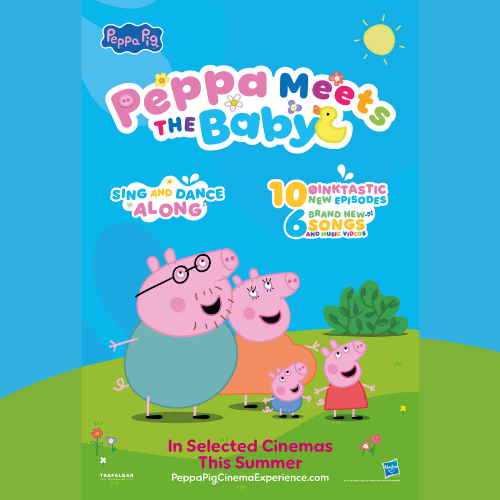Based on a popular anime series, itself inspired by the bestselling manga of all time, live-action Netflix series One Piece became the number one ranked TV series in 84 countries within days of its release, setting a new record for the streaming giant. LicensingSource.net asks the experts whether anime and manga are finally breaking through into the mainstream, and about the opportunities waiting to be seized in the licensing space and at retail.
While manga (Japanese comic books) and anime (the animation series based on them) have been growing in popularity in western markets in recent years, lockdown took them to another level.
“Teenagers couldn’t escape their families,” says Max Arguile, owner of licensing agency Reemsborko. “So, they were in their bedrooms watching anime and playing video games. Consequently, those two things saw a massive boost in 2020 and 2021.”
Reemsborko represents a number of anime and manga brands, from the cute (like Bananya – an anime about a cat who lives inside a banana) to the action packed (BLEACH (main image), Dragon Ball, Naruto) and horror based (the Junji Itô Collection). It can sometimes be difficult, Max says, to get retail buyers to engage with properties they’re not personally familiar with, but for those who do, the rewards are huge. “The buyers might not know anime, but the fans definitely do,” says Max.
“Primark has been on board with it for a few years, and their bestselling men’s t-shirt for the past few years has been a Dragon Ball t-shirt. Our busiest licence is Hatsune Miku; we have over 30 licensees and they all renew when it gets to the end of their term. At the end of 2021 one of our licensees did €1 million of business with a European retailer for two t-shirts.
 “Manga and anime offer an opportunity for licensees and retailers to stand out. If you’re a retailer and you’re selling a superhero product or classic brand that is licensed to the hilt, chances are the shop next door is going to be selling exactly the same thing. Whereas if you have anime product, it’s a major point of difference.”
“Manga and anime offer an opportunity for licensees and retailers to stand out. If you’re a retailer and you’re selling a superhero product or classic brand that is licensed to the hilt, chances are the shop next door is going to be selling exactly the same thing. Whereas if you have anime product, it’s a major point of difference.”
Abysse Corp is well known in the manga and anime category across the UK and Europe. “In the last five years we have seen, and been part of, the growth in both categories, especially across the specialist sector, and now in the mass market and grocery sector,” says managing director Steven Birks. “Currently, our One Piece collection is trending. We have lots of additions planned to the range for Q4, but two highlights would be the One Piece Luffy money bank and Luffy straw hat.”
 With such a wealth of anime and manga licences, Abysse has each IP at a different stage of development, says Steven, “whether it’s one of the core foundation brands such as Dragon Ball Z or one of the hot new IPs released this year like Tokyo Revengers. The ones we are seeing stand out in the UK this year, as well as One Piece, are darker IPs such as Death Note, Jujutsu Kaisen, Toilet-Bound and Junji Itô.”
With such a wealth of anime and manga licences, Abysse has each IP at a different stage of development, says Steven, “whether it’s one of the core foundation brands such as Dragon Ball Z or one of the hot new IPs released this year like Tokyo Revengers. The ones we are seeing stand out in the UK this year, as well as One Piece, are darker IPs such as Death Note, Jujutsu Kaisen, Toilet-Bound and Junji Itô.”
Those same properties perform “sevenfold over the more romantic, slice-of life titles,” says Gary Williamson, hmv’s director of pop culture, UK & Europe. “In terms of popularity, though, shonen [a genre of anime that targets young male audiences] ¬shines above the rest. These titles tend to be a little easier to follow and focus on action, adventure, and fighting storylines. They’re the ones most people have heard of, like One Piece, Naruto and Attack on Titan.”
HMV actively tracks trends on social media, especially on TikTok. “Being part of the community and anime fandom and having the ability to talk to fans to gauge excitement about product and IPs is fantastic,” says Gary. “We have permanent space in our stores for everything anime, so fans have a home whenever they visit. We’ve worked with the likes of Crunchyroll and Funko to bring anime to life in-store with monthly moments, fantastic displays, giveaways and more. Anime is still such an untapped market and with many niche fandoms still looking for products and representation, the potential is huge.”
Manga sales in the US jumped 160% from 2020 to 2021, with 25 million books sold. In the UK, 434,000 manga were sold in 2012, rising to nearly two million in 2022.
“The great thing about manga is that it’s so accessible,” says Andrew Sumner, evp of manga publisher Titan Entertainment. “If you find a creator, style or a specific narrative that triggers your imagination as a reader, there’s a ton of content to jump into.”
Titan’s highlights for Q4 2023 include debut issues for four ongoing manga series: Alpi – The Soul Sender; Witch of Thistle Castle; The Great Yokai War – Guardians, and The Poetry of Ran, plus a Sherlock: A Scandal in Belgravia box set (based on the Steven Moffat/Mark Gatiss BBC series and adapted as a manga by Jay).
“The genre really offers something for everyone,” says Andrew. “My view would be that it’s popular in the same way that US comic books were with American GIs far away from home in the 1940s. Manga has captured the imagination of a generation who feel an affinity for this art form that they can call their own.”
This feature originally appeared in the autumn 2023 edition of Licensing Source Book. To read the full publication, click on this link.


































